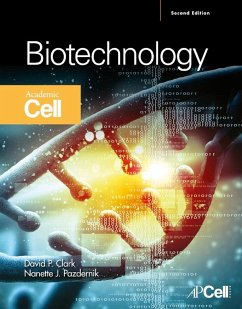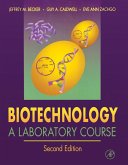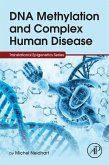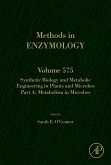Biotechnology, Second Edition approaches modern biotechnology from a molecular basis, which has grown out of increasing biochemical understanding of genetics and physiology. Using straightforward, less-technical jargon, Clark and Pazdernik introduce each chapter with basic concepts that develop into more specific and detailed applications. This up-to-date text covers a wide realm of topics including forensics, bioethics, and nanobiotechnology using colorful illustrations and concise applications. In addition, the book integrates recent, relevant primary research articles for each chapter, which are presented on an accompanying website. The articles demonstrate key concepts or applications of the concepts presented in the chapter, which allows the reader to see how the foundational knowledge in this textbook bridges into primary research. This book helps readers understand what molecular biotechnology actually is as a scientific discipline, how research in this area is conducted, and how this technology may impact the future.
- Up-to-date text focuses on modern biotechnology with a molecular foundation
- Includes clear, color illustrations of key topics and concept
- Features clearly written without overly technical jargon or complicated examples
- Provides a comprehensive supplements package with an easy-to-use study guide, full primary research articles that demonstrate how research is conducted, and instructor-only resources
Dieser Download kann aus rechtlichen Gründen nur mit Rechnungsadresse in A, B, BG, CY, CZ, D, DK, EW, E, FIN, F, GR, HR, H, IRL, I, LT, L, LR, M, NL, PL, P, R, S, SLO, SK ausgeliefert werden.









